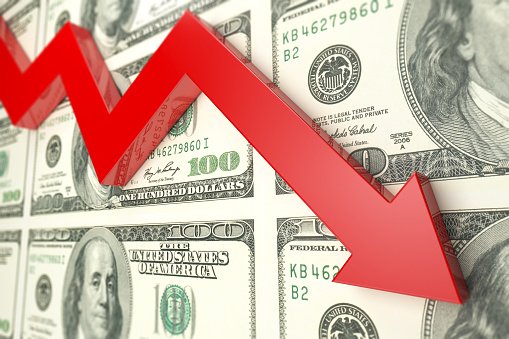
Gloo Could Become Stickier Presence on Right After $30M Deal With Salem Media
Right Wing Biz Watch
By David Lieberman, October 11, 2023
At first glance, the $30 million agreement Salem Media Group announced last week to sell its Church Products business to Gloo LLC looks unremarkable. But keep an eye on this one: it could have far-reaching implications for rightwing media and messaging from both companies.
On November 1, when the deal is due to close, the radio, publishing, and online home for commentators including Dinesh D’Souza, Sebastian Gorka, and Charlie Kirk will receive cash in exchange for about 10 websites that provide digital resources to help clergy prepare sermons, find jobs, and add multi-media to religious services. They will go to Gloo, a Christian-focused tech company that’s probably best known for its work on the massive “He Gets Us” ad campaign for churches, which included two TV spots in 2023 Super Bowl.
Salem’s Struggles
Salem desperately needs the cash. The company that calls itself “America’s leading multimedia company specializing in Christian and conservative content” has struggled to diversify into digital businesses that might grow at a time when radio ad sales have stagnated. Wall Street lost faith in early March when Salem projected higher than expected spending plans. Since then, its stock price plummeted more than 48 percent in contrast to the Standard & Poors 500 which rose about 16 percent. In June, NASDAQ threatened to delist Salem noting that its stock price slipped below $1.00 a share – the minimum needed to remain on the exchange. Salem opened on Monday at 74 cents, up from a low of 54 cents in September. Its market value hovers around $20 million.
Banks also prayed that the rightwing media company would make good on its loans after it failed to comply with a covenant that requires Salem to have a specified amount of cash on hand to cover its fixed costs. Over the summer, the banks amended the agreements, giving Salem additional time to fulfill the terms. The $30 million deal with Gloo “provides a timely influx of cash that assuages liquidity concerns,” Noble Capital Markets’ veteran analyst Michael Kupinski wrote.
Gloo’s Ambitions…and a Hidden Agenda?
But an additional term in the agreement could do a lot to promote Gloo in its ambitious effort to become a dominant provider of business services for Christian churches – and, critics say, possibly a force in right wing media and politics. The privately held company gave Salem more than 800,000 “preferred membership units” in return for $10 million worth of ad time and space on its radio and digital platforms. They must be used before the end of 2028.
That’s sure to alarm those who say Gloo has a hidden agenda.
Documentary maker Charles Kriel alleged in a 2020 film People You May Know that a charity funded by Charles and David Koch commissioned Gloo and Cambridge Analytica to create a platform that targets “people who are suffering from addiction, financial distress, who might be struggling with opioid dependence or they might be dealing with bipolar issues.” Once identified, he said, churches and other groups could direct social media messages to them so they can be “recruited into the politics of the far right.”
Australian researcher Brent Allpress, who helped with the film, said in 2020 that Gloo “has 2,000 points of data on every American” and can micro-target messages to church goers using “a few of the drop-down filters which are either demographic, religious, relationship or financial.” Its capabilities have grown since then under an apparently savvy executive team with serious business experience. Gloo was co-founded by CEO Scott Beck, a former COO of Blockbuster Entertainment, CEO of Boston Market, and founding investor in Einstein/Noah Bagel Corp, Ancestry.com, and HomeAdvisors.com.
AI and Hobby Lobby
The Salem deal is just one of Beck’s recent initiatives to broaden Gloo’s reach. It provides an online hub with sermon notes and discussion guides to support filmmaker Dallas Jenkins’ streamed video series about Jesus and the disciples: The Chosen. It’s produced by crowd-funded Angel Studios, which turned this year’s film Sound of Freedom into a surprise hit with nearly $231 million in worldwide ticket sales.
Beck said in last week’s press release that the Salem assets “will accelerate our ability to connect churches with a broad network of great products and producers in everything from Sunday weekend experiences, children’s resourcing, staffing and digital evangelism/discipleship.”
Gloo was especially busy in August. It unveiled an offer to provide churches and faith-based organizations with no-cost texting services they can use to reach congregants. The company released initial results of an ongoing “AI & the Church Survey” conducted with partners including the Barna Group, Ed Stetzer, and the Lausanne Movement. “While leaders generally understand AI, they are indicating they need more training in order to use it effectively,” Gloo’s Director of Common Measurement Steve Millette said. “More discussion is needed about how the Church can properly use the technology to support ministry.” The company also announced what it calls a “major strategic investment” in Outreach, one of the largest suppliers of media and marketing resources for churches.
Gloo’s work on the “He Gets Us” ad campaign was supported in part by Hobby Lobby founder David Green. “We have to create a movement,” the right wing billionaire told Glenn Beck last November. “Until we accept [Jesus] and know him and his scriptures and his book that he’s given us, we can’t settle the problems we have.”
Right Wing Biz Watch is a ongoing series of articles examining the business and finances of right wing media. Its author, David Lieberman, covered the media business full time for 30 years at USA Today and other publications before joining The New School as an Associate Professor in its graduate Media Management program.

Salem desperately needs the cash from Gloo. Wall Street lost faith in early March when Salem projected higher than expected spending plans. Since then, its stock price plummeted more than 48 percent in contrast to the Standard & Poors 500 which rose about 16 percent. (Image: Pixabay)





